Trusted Seattle Service Company for Water heater replacement Water heater repair
Trust SeattleAirSuperior for efficient water heater repair and replacement in Seattle, delivering quick solutions to ensure your continuous hot water supply.
See Our Great Reviews On Google
Our AC Services
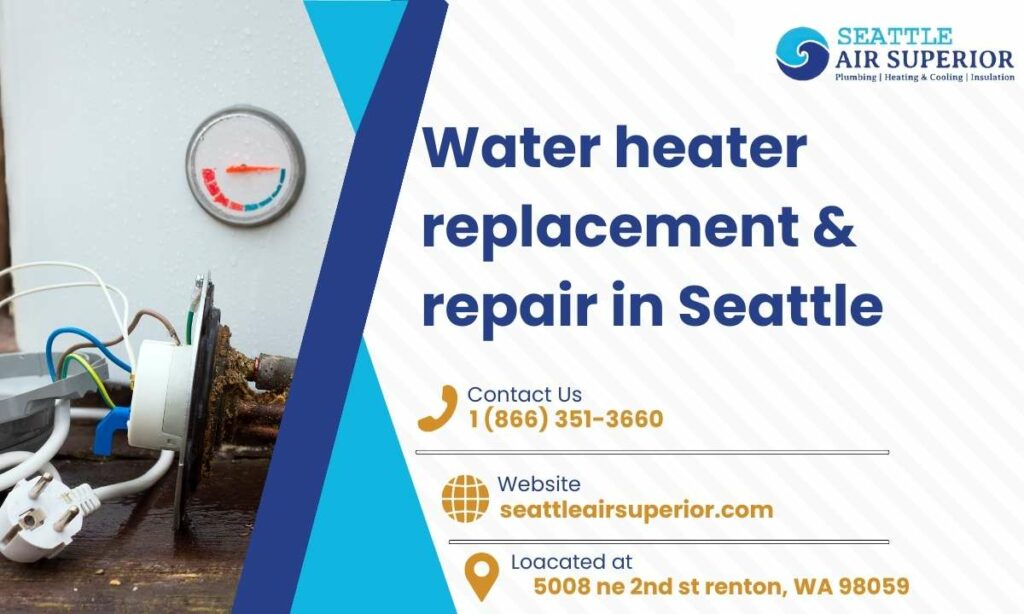
How to Choose the Right Service for Your Hot Water Heater Replacement
When your old water heater fails, choosing the right replacement service is crucial. Make sure to select a licensed, professional technician that specializes in water heater installation and repair.
They should thoroughly assess your needs and recommend the most optimal tank or tankless model for your home’s requirements.
Opt for a service that provides top-quality water heaters from reliable brands. They should remove your old unit and haul away disposal safely.
The right technicians will also customize installation to your home’s layout, properly size gas and water lines, adjust electrical wiring, and modify venting when required.
Finally, choose a service that stands behind their work with warranties and maintenance plans. Scheduling tune-ups helps maximize the lifespan of your new system.
For affordable, reliable hot water heater replacement in Seattle, call the experts at SeattleAirSuperior.
Our skilled team has been providing prompt, quality water heater installation and repair services to area homeowners for many years. Contact us today for your upgrade!
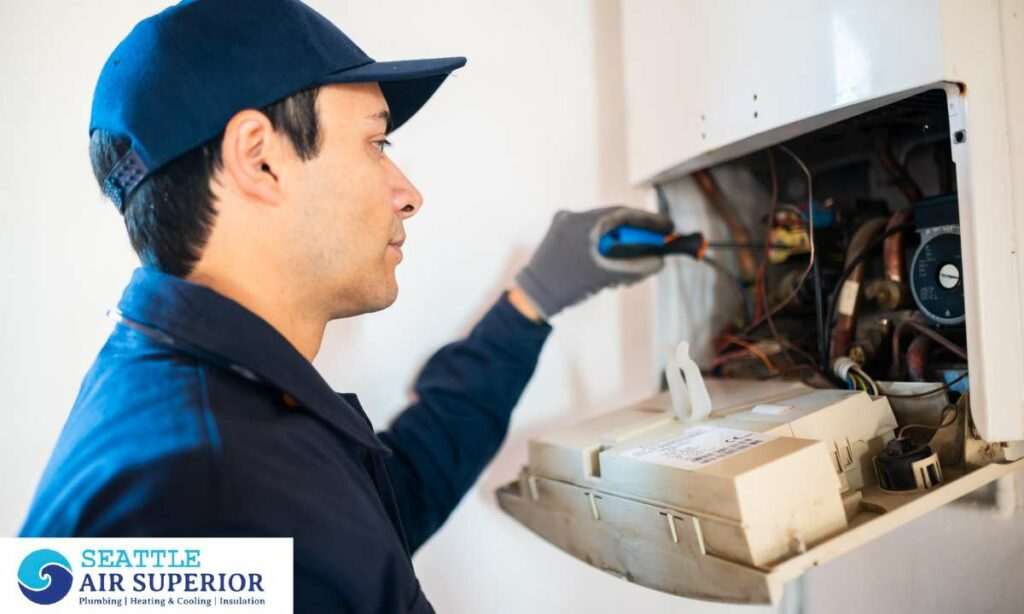
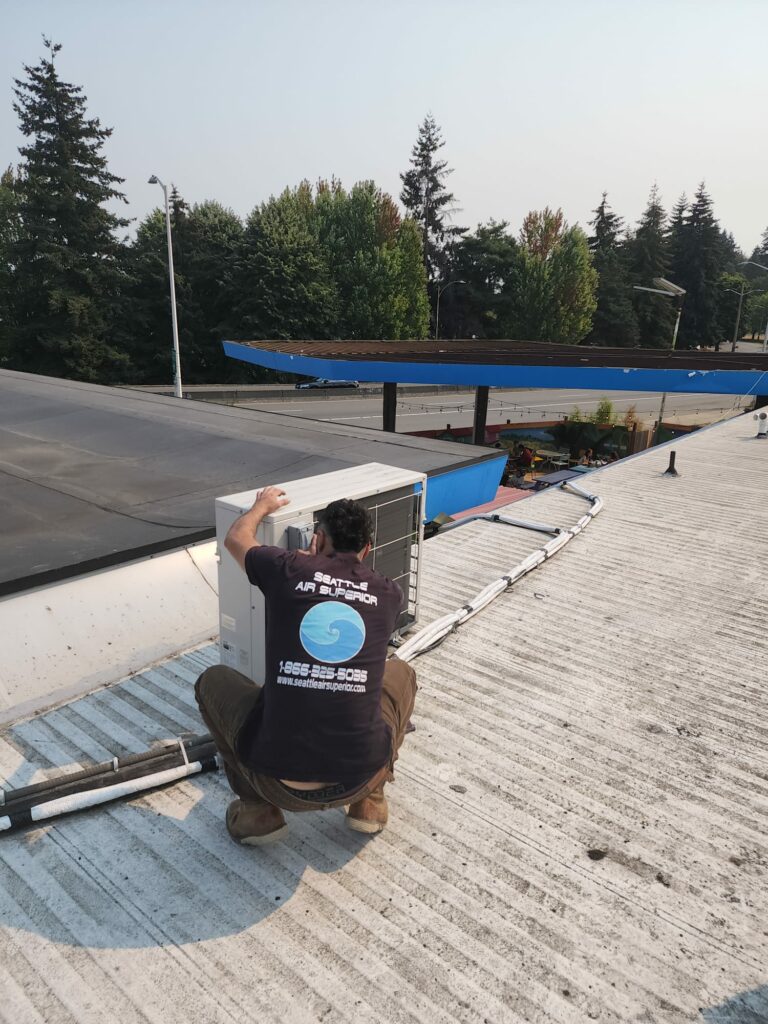
Commercial Air Conditioning Unit Maintenance by seattle air superior Technician on Rooftop
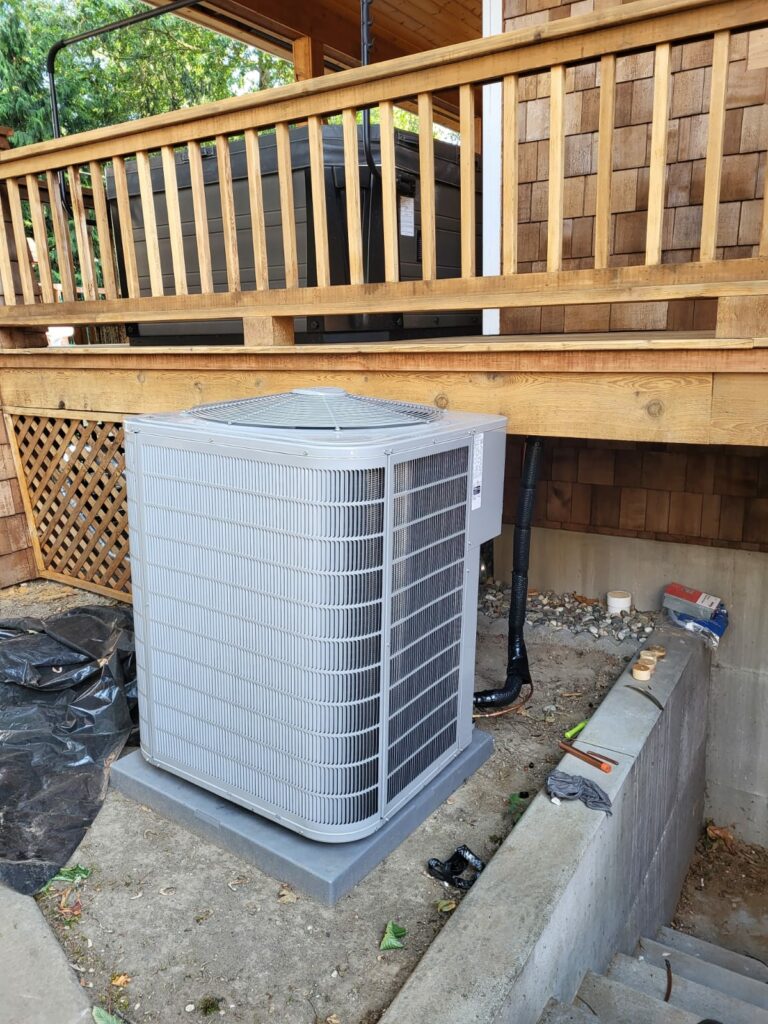
Home Air Conditioning Unit Installation Beside Wooden Deck
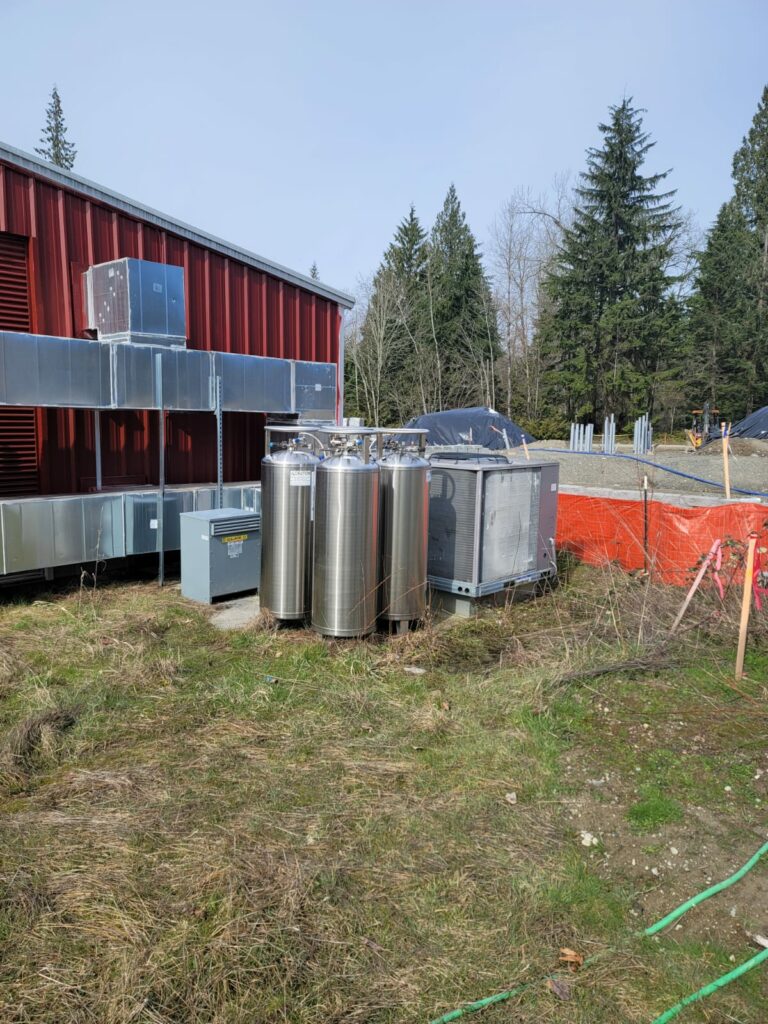
Commercial HVAC System and Tanks Beside Industrial Building
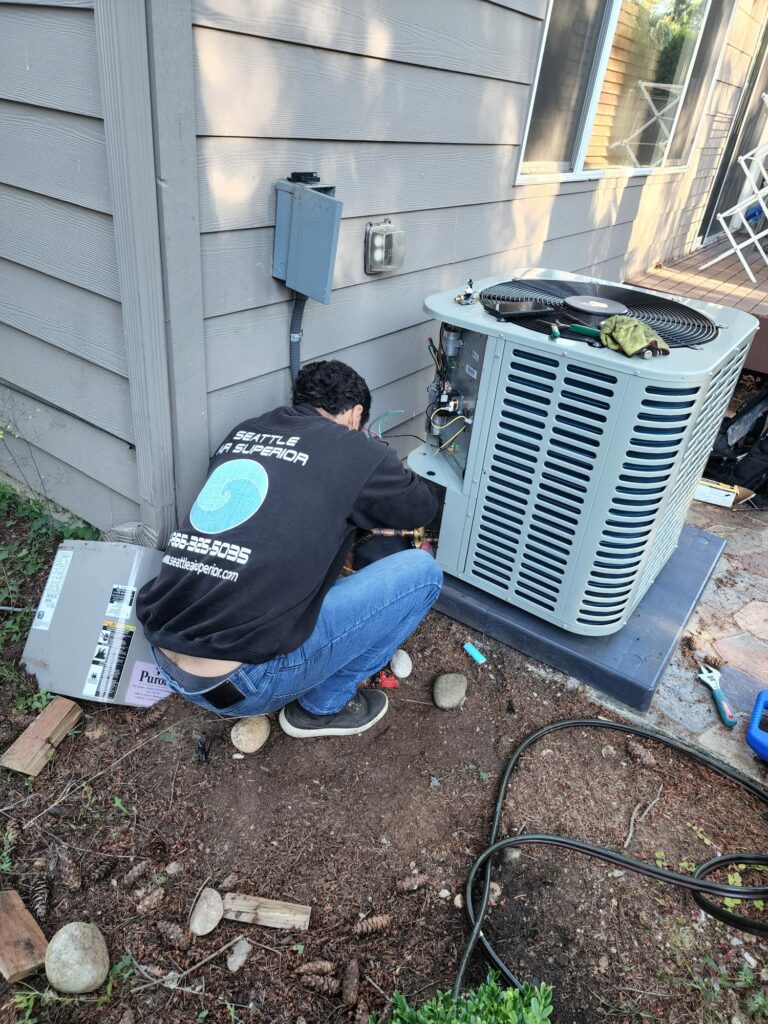
Residential Heat Pump Repair by 'Seattle Superior Air' Technician
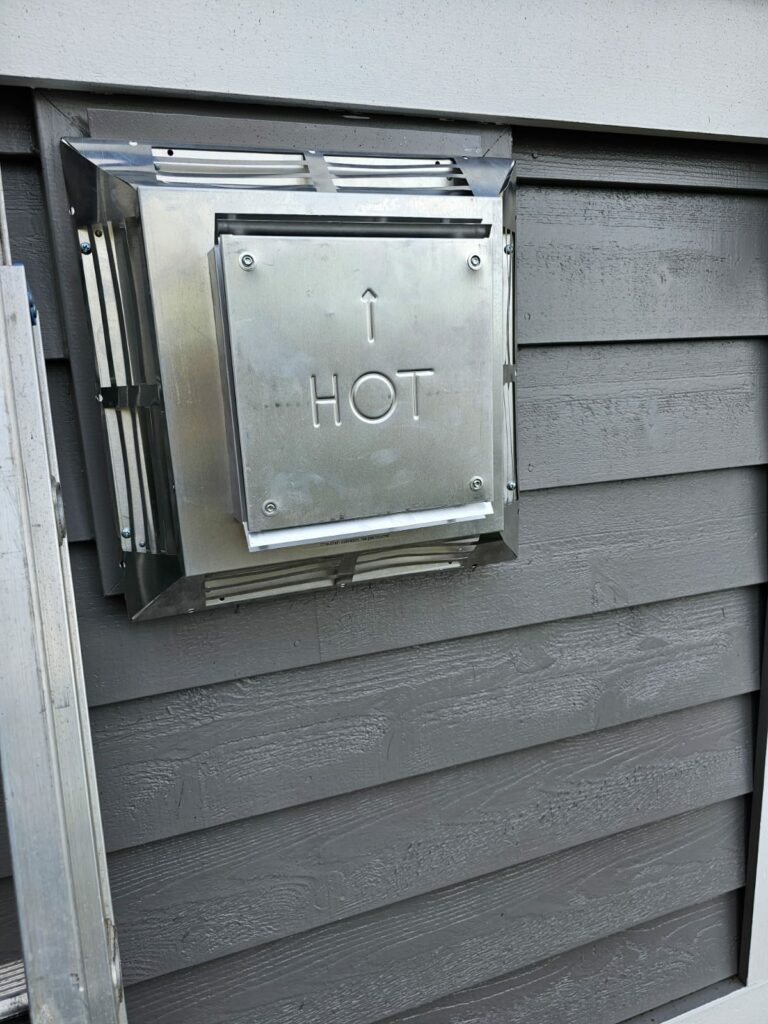
High-Efficiency Furnace Hot Exhaust Vent on Home Exterior
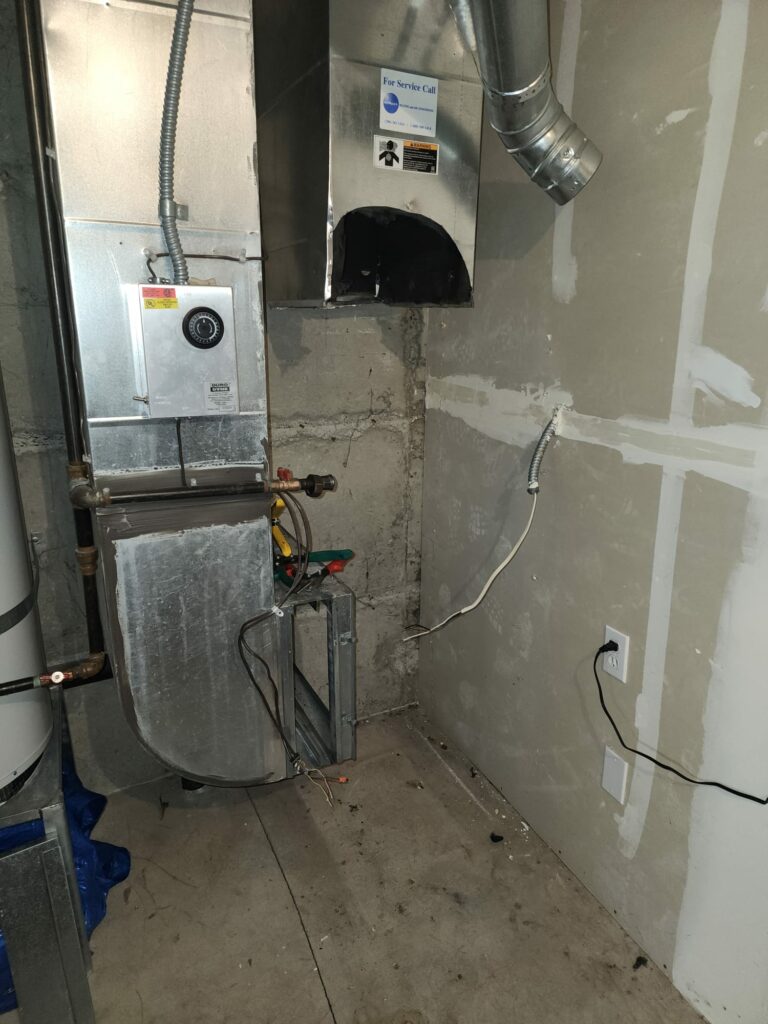
HVAC System Installation and Setup in a Residential Utility Room
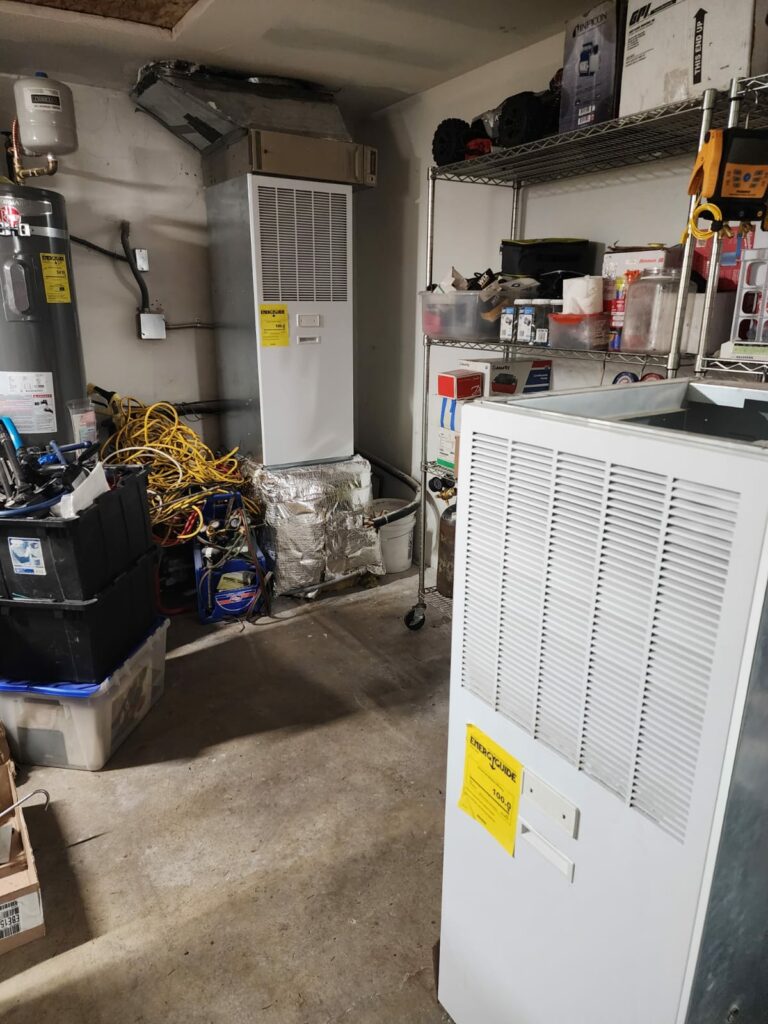
Organized Residential Garage with HVAC and Water Heating System
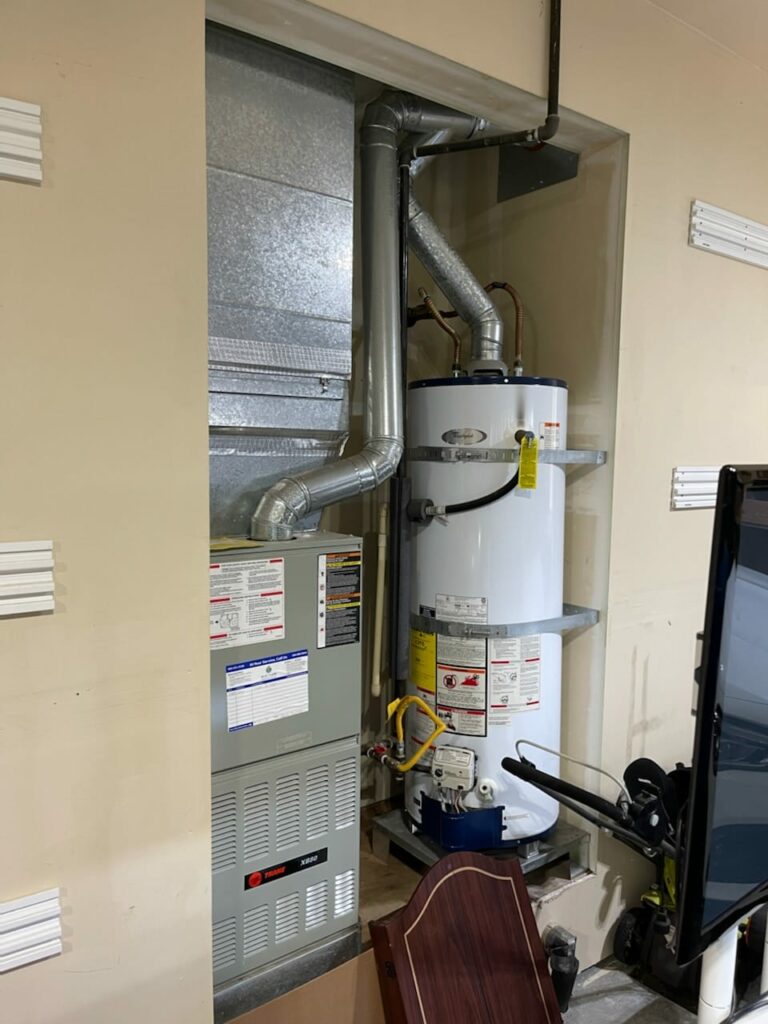
Modern Trane Furnace and Gas Water Heater Setup in a Home Utility Area
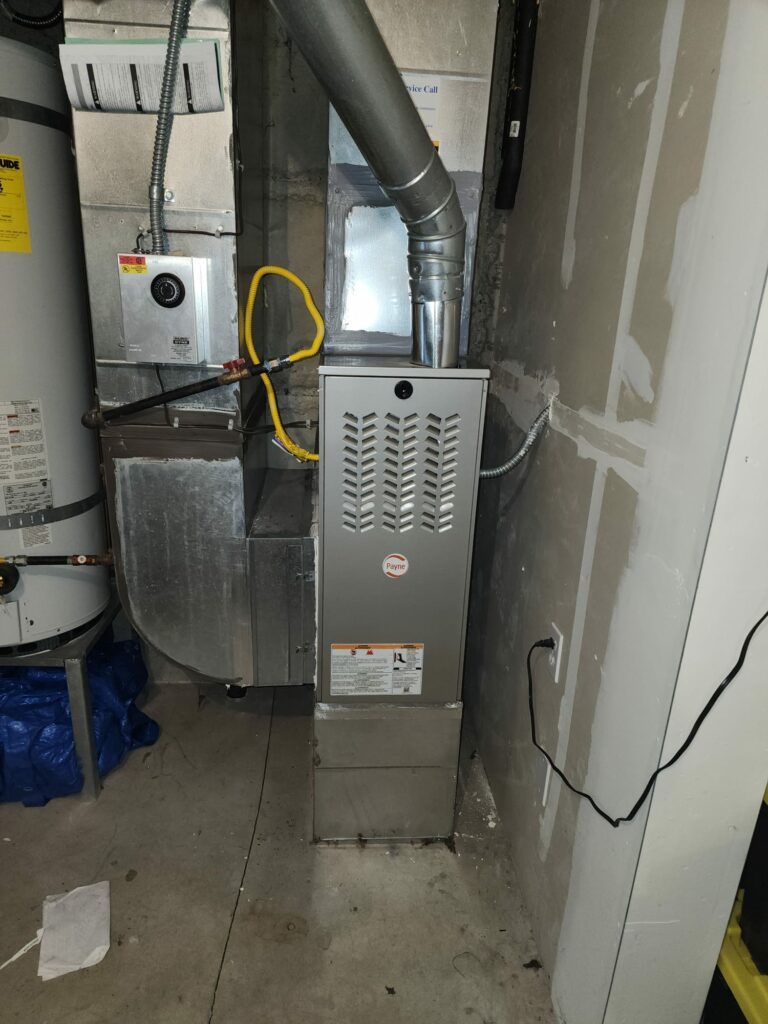
New Payne Furnace Installation with Ductwork in a Residential Utility Space
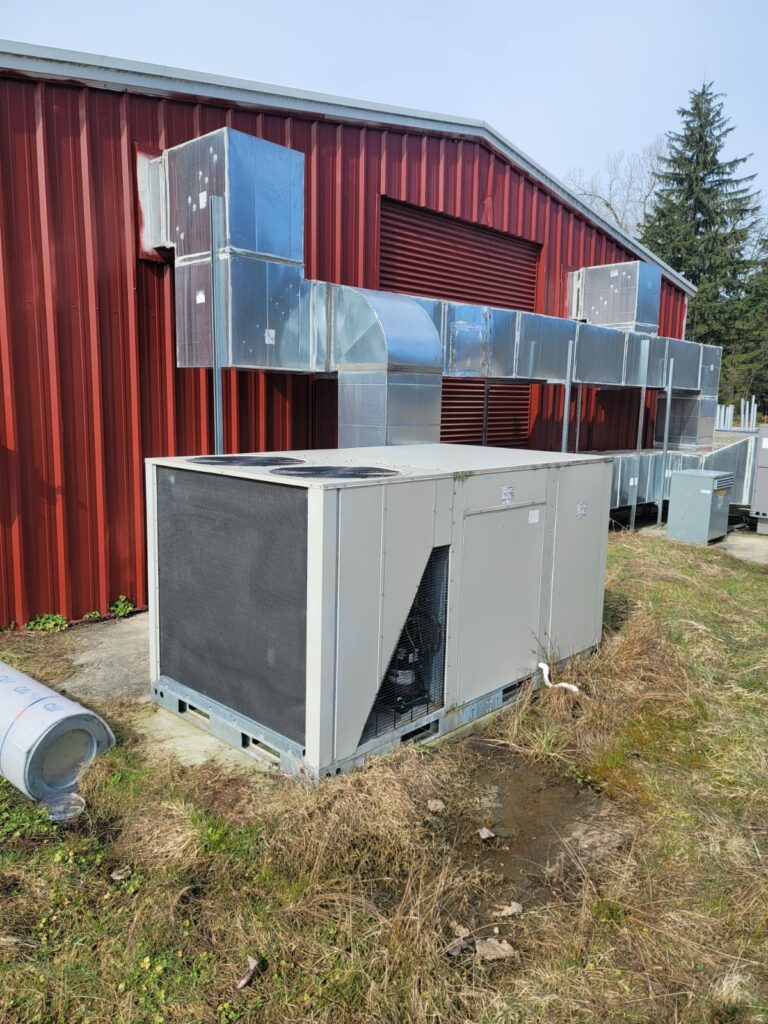
Industrial HVAC System and Ductwork on the Exterior of a Metal Building
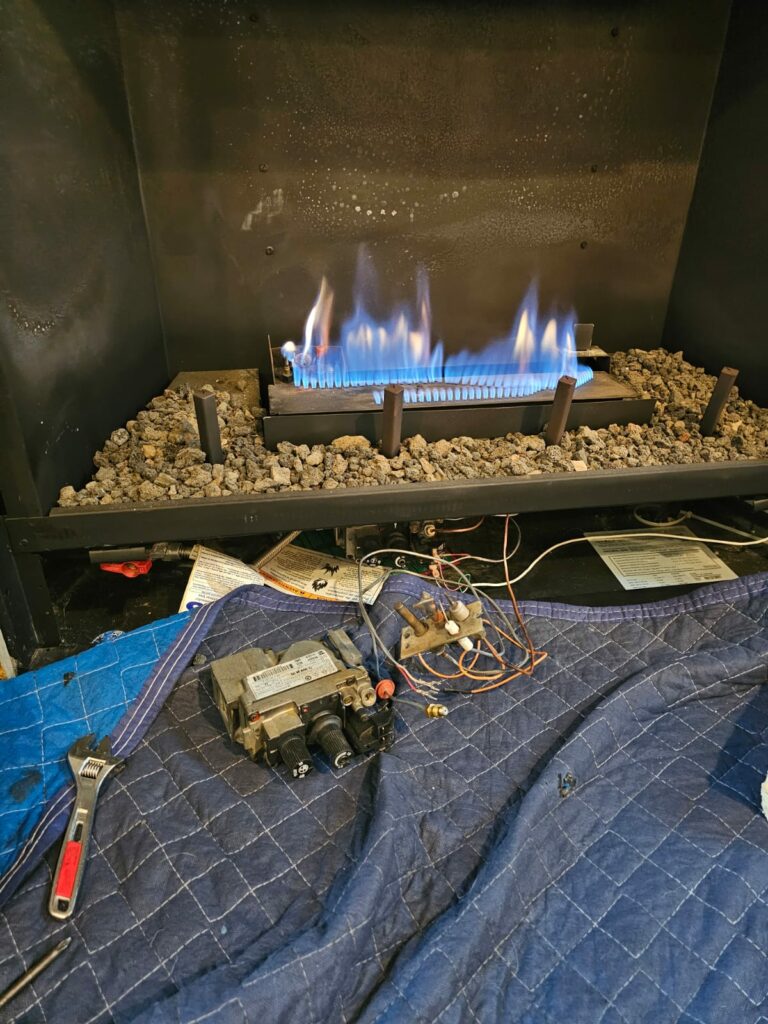
Gas Fireplace Service and Repair with Exposed Valve Assembly
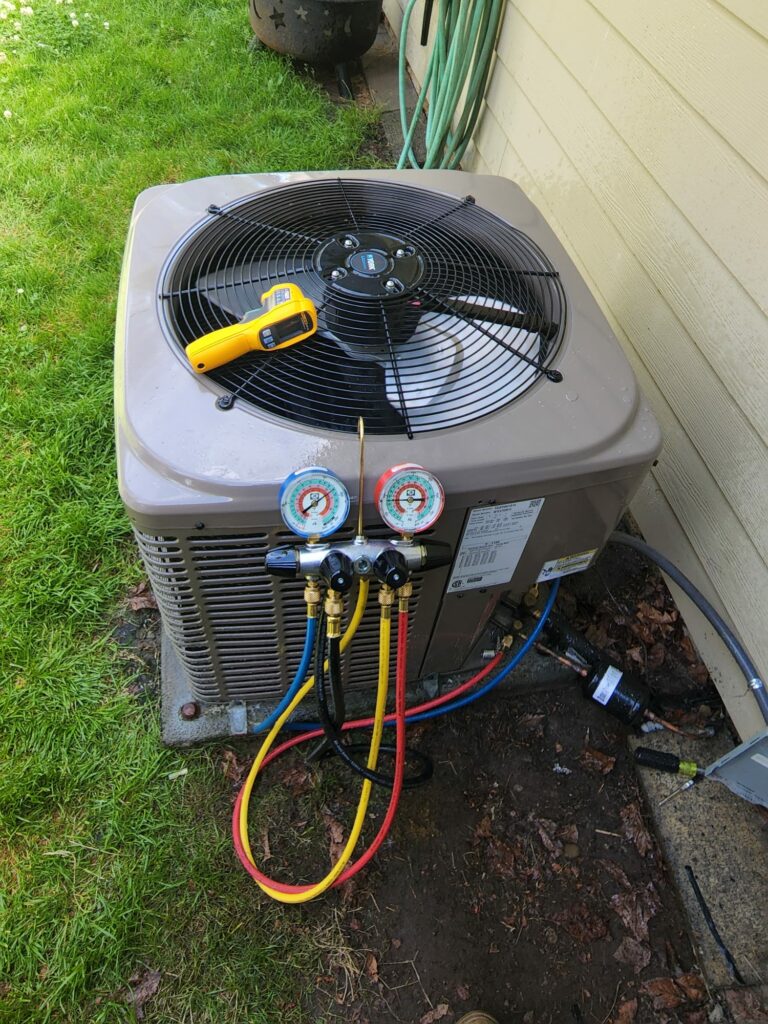
Residential Heat Pump Diagnostic and Pressure Check Procedure
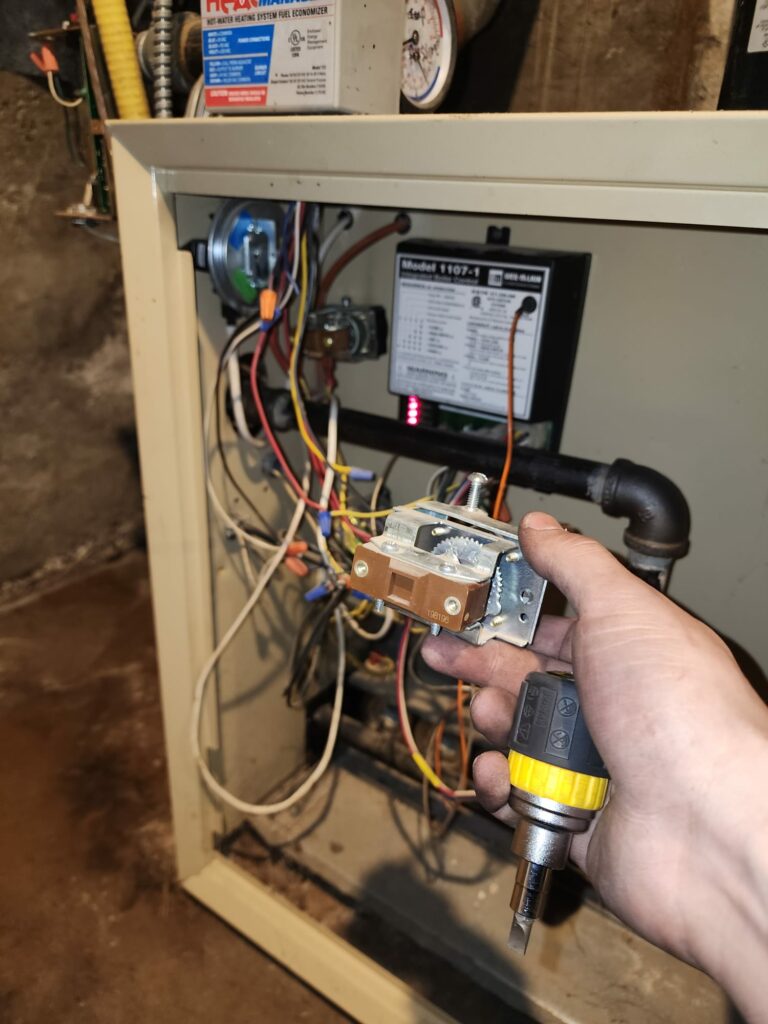
Replacing Ignitor in Gas Furnace During HVAC Maintenance
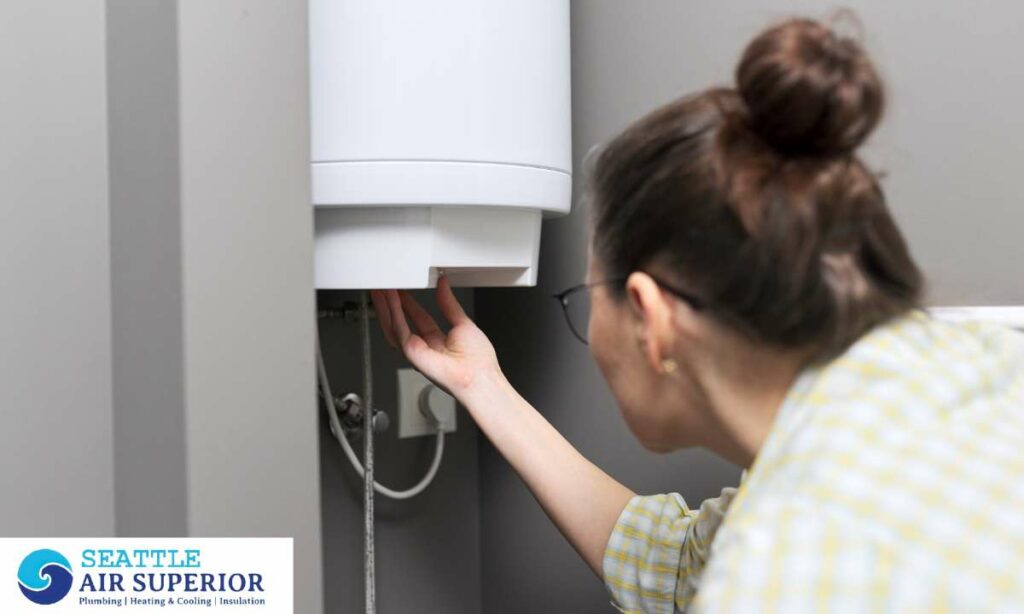
Comprehensive Guide to Water Heater Servicing in Seattle
Having a working water heater is essential for every Seattle household. However, water heaters can break down over time and require repairs or replacement. As a Seattle homeowner, it’s important to understand the basics of water heater servicing.
In this article, we’ll cover some key things to know about maintaining your water heater and working with professionals for installation, repairs or replacement.
We’ll explain what to look out for to know when your water heater needs service, tips for preventing issues, when to DIY versus calling a pro, and what to expect from the servicing process.
Tank vs. Tankless: Which Hot Water Heater Is Best for Seattle Homes?
Choosing the right water heater for your Seattle home involves weighing the benefits of tank versus tankless models.
Each has its own advantages and considerations, affecting everything from installation costs to long-term energy savings. Here’s what you need to know:
Tank Water Heaters:
| Tankless Water Heaters:
|
Our Happy Clients











Signs It's Time for a Water Heater Replacement in Your Seattle Home
Recognizing when to replace your water heater is key to avoiding unexpected breakdowns and ensuring you always have access to hot water. Here are four signs that it might be time to consider a replacement, particularly if you’re considering a tankless hot water heater:
- If your water heater is more than 10-15 years old, it’s likely nearing the end of its useful life. Tankless models can last longer, but all types eventually wear out.
- Visible rust on the tank or in your hot water is a clear sign that your water heater is failing. Rust can lead to leaks, which might necessitate a complete replacement.
- If you start experiencing fluctuations in water temperature or your water doesn’t get as hot as it used to, the efficiency of your water heater could be compromised.
- Any signs of leaking around the water heater are urgent indicators of potential tank failure. Water pooling around your heater should prompt an immediate assessment to decide if a replacement is necessary.
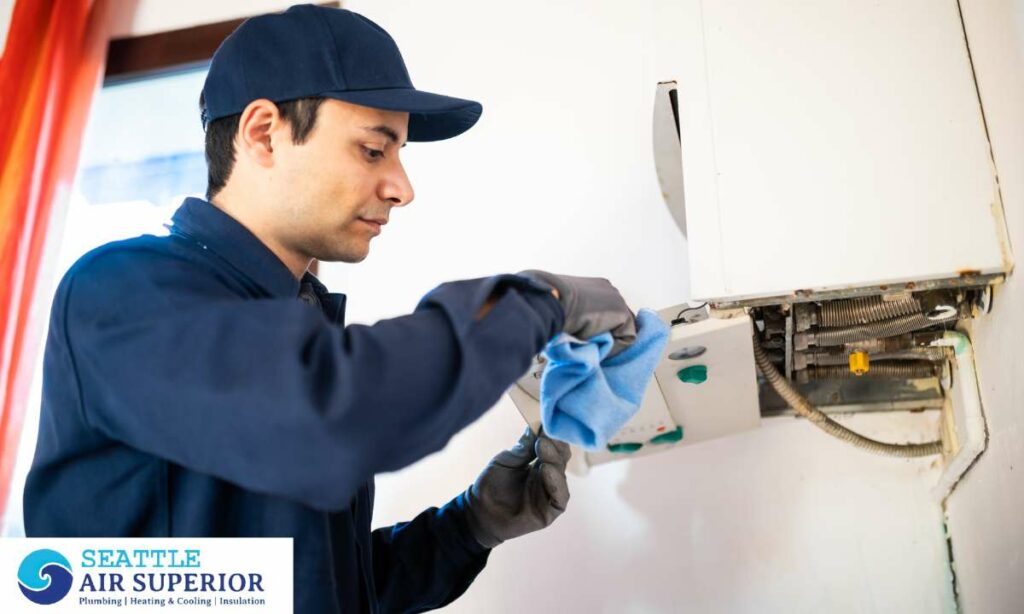
Troubleshooting Tips for Hot Water Heater Repair
Dealing with hot water heater problems can be frustrating. Here are 5 troubleshooting tips for common hot water heater repair issues:
- No hot water - Check that the power or fuel supply (electricity, gas) is connected. Reset the temperature setting on the tank to make sure it's heating properly.
- Leaking tank - Shut off water supply and drain the tank. Worn out tanks often need full replacement. Call a plumber for inspection.
- Strange sounds - Rumbling or banging noises can indicate sediment buildup. Drain the tank to flush it out. Knocking could mean a loose element that needs securing.
- Low hot water pressure - Inspect the water heater's valves and pipes for obstructions or clogs reducing flow. Clean out mineral deposits.
- High energy bills - Faulty thermostats can lead to overheating. Inspect the thermostat and heating elements. Insulate warm pipes to prevent heat loss.
For thermostat Replacement & installation >>
Knowing these basic troubleshooting steps for seattle hot water heater replacement can help homeowners address common problems before calling a repair company. Catching issues early can often prevent more complex repairs down the road.
The Benefits of Upgrading to a Tankless Hot Water Heater
Many Seattle homeowners are switching their outdated water heaters to modern tankless models. Going tankless provides several advantages:
- Endless hot water – Tankless heaters produce unlimited hot water on demand, never running out during showers or using multiple taps.
- Energy efficiency – Tankless units only heat water as needed, wasting less energy than storing heated water in tanks. This can lower utility bills.
- Compact size – Taking up less space than bulky tank heaters, tankless models can fit in tight spots and closets.
- Longevity – Tankless water heaters last over 20 years on average, twice as long as tank heaters. Less parts break down over time.
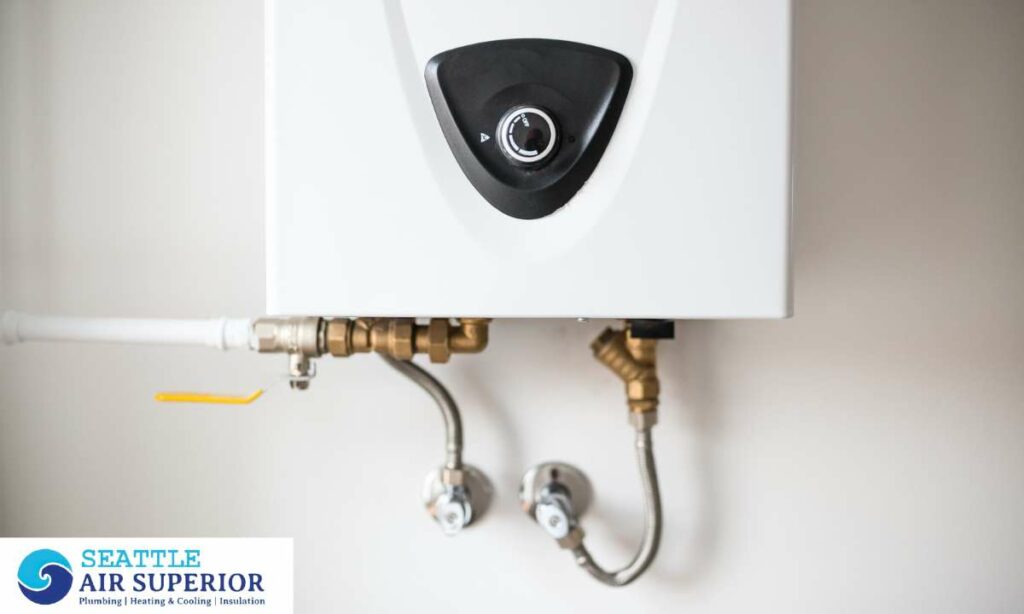
DIY Fixes or Professional Repair: Navigating Your Water Heater Issues
When encountering issues with your water heater, SeattleAirSuperior wants you to know the ins and outs of DIY fixes versus opting for professional repair.
Understanding when you can handle a problem on your own and when to call in experts can save you time and money, while ensuring the longevity and efficiency of your water heater.
Whether it’s a minor adjustment or a significant hot water line repair, making the right choice is crucial.
DIY Fixes | Professional Repair |
|
|
Cost Analysis: Investing in a New Water Heater Installation in Seattle
When considering a new water heater installation in Seattle, conducting a thorough cost analysis is essential. Initially, the price may seem steep, but it’s important to factor in long-term savings on energy bills, especially with more efficient models like tankless water heaters.
Upfront costs include the purchase price of the unit, installation fees, and any necessary modifications to your home’s plumbing or electrical systems. It’s also worth considering potential rebates or tax incentives for installing energy-efficient models.
Over time, a new water heater can offer significant savings. Modern units are designed to be more energy-efficient, reducing the cost of heating water. Additionally, reducing the need for frequent repairs or emergency services for older, less reliable units can contribute to overall savings.
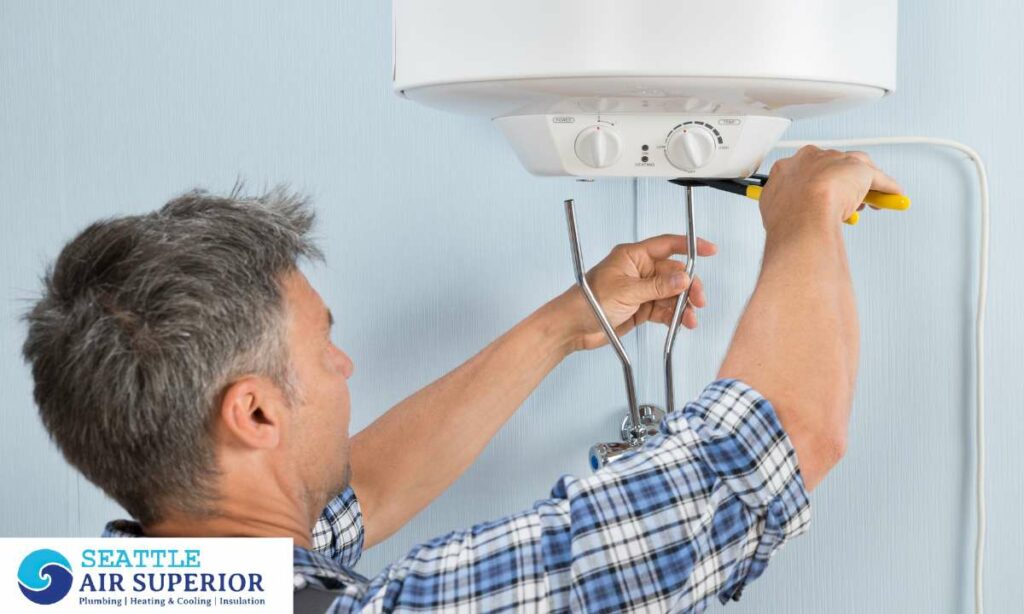
Preventing Common Water Heater Problems with Regular Servicing
Regular servicing is a cornerstone of water heater maintenance, crucial for preventing common problems that can lead to inefficiency, damage, or complete system failure.
SeattleAirSuperior emphasizes the importance of understanding how routine checks and maintenance can safeguard your home’s hot water supply. By staying ahead of issues, homeowners can extend the lifespan of their water heaters, ensure consistent performance, and avoid the inconvenience and costs associated with unexpected breakdowns.
Regular servicing includes tasks such as inspecting for leaks, checking the pressure relief valve, and flushing the tank to remove sediment buildup, which, if neglected, can lead to reduced efficiency and potential damage over time.
Moreover, specialized maintenance like hot water line repair ensures that the entire system operates smoothly, preventing minor issues from escalating into major problems.
Such proactive measures not only enhance the longevity and efficiency of your water heater but also contribute to safer operation. Ensuring that your water heater is serviced by professionals can help in identifying wear and tear early, replacing worn-out parts before they fail, and adjusting settings to optimize performance according to your specific needs.
Maximizing Efficiency: Maintenance Tips for Your Water Heater
Maintaining your water heater is crucial for ensuring it operates efficiently and lasts as long as possible. Regular upkeep not only extends the life of your appliance but also helps in reducing energy costs.
- Sediment build-up can significantly impact your water heater’s efficiency. Draining and flushing the tank annually removes these sediments, enhancing performance. For water heater servicing, consider hiring a professional to inspect for any signs of wear or damage during this process, ensuring your system operates smoothly.
- The anode rod protects your tank from rusting. Checking it at least once every two years and replacing it if more than 6 inches of the core steel wire is exposed or if it’s coated with calcium, ensures your tank remains corrosion-free.
- Setting the temperature to 120°F provides the ideal balance between energy efficiency and hot water supply. This prevents scalding and reduces energy consumption, which, in turn, lowers your utility bills.
- Insulating both your water heater’s tank and the first few feet of the hot water pipe reduces heat loss. This means less energy is required to maintain the water temperature, further boosting efficiency.
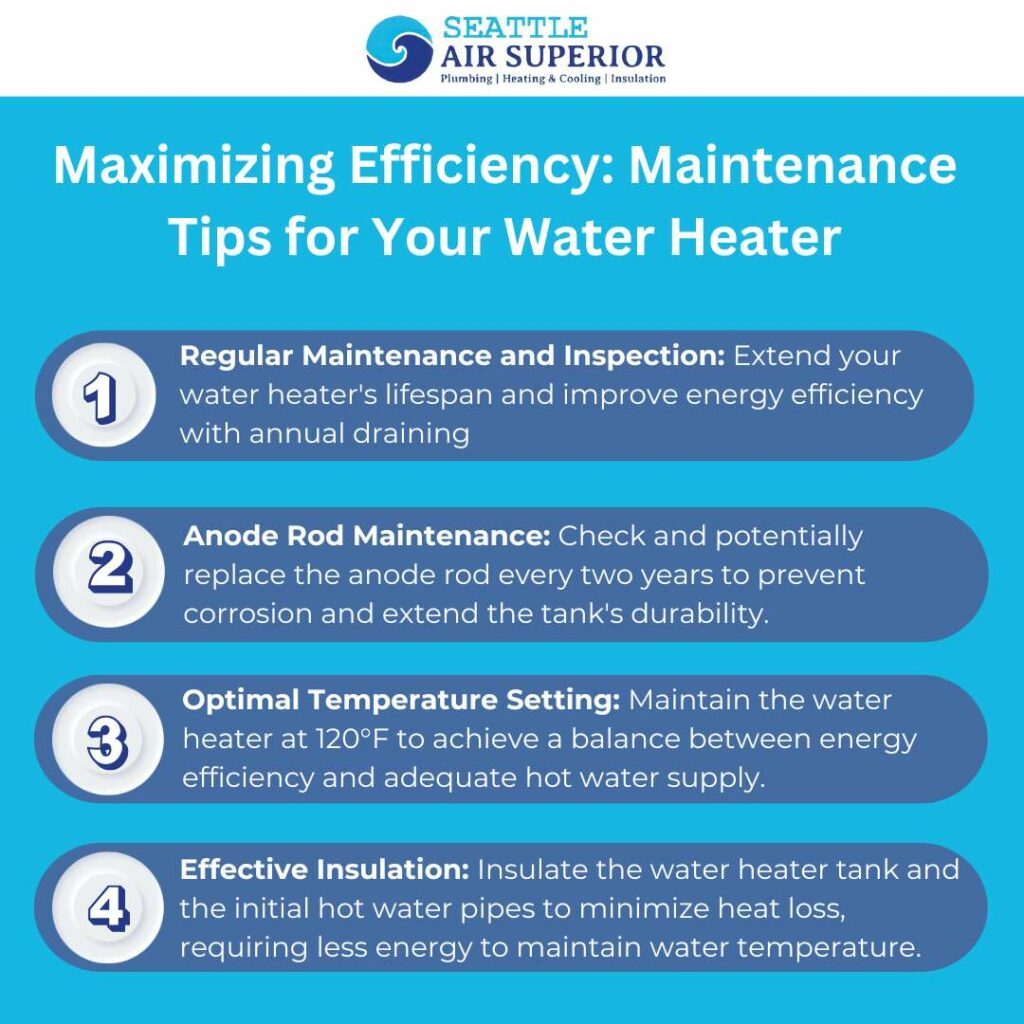
FAQs: Water Heater Replacement Questions Answered
If your water heater is leaking, not providing enough hot water, making strange noises, or showing signs of corrosion, it may need repair or replacement. A professional inspection can determine if a repair will suffice or if a full replacement is more cost-effective in the long run.
Immediate attention is required if you notice water pooling around the base of your heater, if the water has a rusty color or bad odor, or if you hear loud banging or popping noises. These signs could indicate serious issues that need prompt professional intervention.
On average, a traditional tank water heater lasts about 8-12 years, while tankless models can last up to 20 years. Consider replacement if your unit is nearing the end of its expected lifespan, especially if you’re experiencing frequent breakdowns or a significant drop in efficiency.
Yes, SeattleAirSuperior offers a range of energy-efficient water heater options, including tankless water heaters, which can reduce energy consumption and lower utility bills. Our team can help you choose the best system for your needs and ensure a professional installation.
Contact SeattleAirSuperior to schedule an inspection or consultation. Our experts will assess your water heater, provide a detailed diagnosis, and recommend repairs or replacement options. Once you choose a service, we’ll schedule a convenient time to carry out the work, ensuring minimal disruption to your routine.
Contact SeattleAirSuperior for Expert Water Heater Replacement & Repair Services in Seattle
Facing issues with your water heater in Seattle or thinking about an upgrade? Reach out to SeattleAirSuperior, where our skilled professionals are at your service to provide top-notch water heater replacement and repair solutions. We’re committed to addressing your specific needs with a range of customized services and advanced features.
Don’t let water heater troubles disrupt your day—contact SeattleAirSuperior today to discover how we can enhance your water heating system’s efficiency and reliability. Let us provide the expertise and support you need to ensure your hot water is always flowing
HV/AC Services
- AC Repair
- AC Replacement
- AC Maintenance/Tune-up
- Ductless Mini Split Installation
- Thermostat Installation/Repair
- Furnace/Heater Repair
- Furnace/Heater Replacement
- Furnace/Heater Maintenance
- Boiler Repair/Installation
- Heat Pump Repair
- Water Heater Replacement
Service Areas
Contact - Schedule a call
At Seattle Air Superior, we have the proper manpower, equipment, and training to perform quality services that put your needs first. We are more than happy to answer any questions and discuss all of your options with you. Contact Us Today.
- Hours of operation:
- Monday - Thursday: 7:00 AM - 6:00 PM
- Friday: 7:00 AM - 3:30 PM
- Saturday: Closed
- Sunday: 8:00 AM - 5:30 PM
Our Services
Installation & Removal, Attic & Crawl Space Cleaning & installation, Vapor Barrier installation, Rodent & Pest Proofing, Water Damage, Drying & Restoration.

With A 5 stars service 12 years in business 0 complaints Satisfaction guarantee. The client enjoy the benefit of one way stop. I fix 99% of the problems. I like what I do and I would like to share my knowledge and skills with my clients and provide top service.
